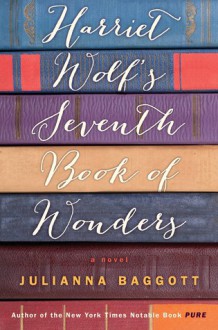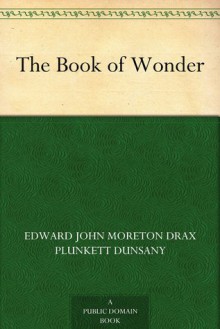
With City of Wonders, James A. Moore has gifted readers with a new fantasy classic; a sword and sorcery series that mixes magic and combat, reality and supernatural into a potent and addictive brew. Howard’s Conan, Cook’s Black Company, Gemmell’s Drenai, and Moorcock’s Elric, I am hereby placing you on notice that another series will soon be proudly sitting among you: Seven Forges, because, yes, it is that good!
Huh, you want a more in-depth review? Why? I mean, I just anointed City of Wonders as the novel that catapults Seven Forges into the upper echelon of sword and sorcery fantasy ever written. Isn’t that good enough for you? It isn’t? Okay, okay, I’ll try to expand upon my glowing comments.
As readers of the series already know, James Moore has been slowly introducing all of us to his marvelous creation the Sa’ba Taalor. These mysterious, grey skinned warriors erupted from the pages of Seven Forges , instantly stealing the spotlight from their more pedestrian human discoverers. The subsequent tale of their journey to the Fellein Empire, their exploits there, and the shadowy motives for their actions might have been more good old-fashioned fun than the usual fantasy epic, but the story definitely held the promise that epic-ness was soon to come.
With The Blasted Lands , the veil across the Sa’ba Taalor began to be tantalizingly pulled back. Brief glimpses into their hidden world and almost unearthly culture only serving to whet a reader’s appetite to know more . . . more about the Sa’ba Taalor society, more about their hidden history, more about their living gods, and more about their plans for the rest of the world. And when the story ended with a huge, earth-shattering conclusion, it was clear that book three would finally, beyond any doubt, take this series into the epic realm, giving readers what they desperately wanted: the Sa’ba Taalor at war!
City of Wonders begins immediately after the Sa’ba Taalor reveal their true intentions toward their neighbors. Empress Nachia, Sorcerer Desh Krohan, and General Merosh Dulver are suddenly confronted with their worst nightmare: A land of god-led, near super human warriors whose only goal is to wipe humanity off the face of the world, starting with the Fellein Empire!
Talk about a damn bad situation to be in.
Our trio of Fellein leaders frantically attempt to stabilize the situation, concoct a defense plan, but before they can even begin in earnest, the hammer which has been slowly crafted for a thousand years in the Seven Forges starts to fall. Sa’ba Taalor armies swarm out of the Blasted Lands. Not one, but many. Each bringing death and destruction on an epic scale. Once sacred and unconquered places are not immune or impervious to these ancient enemies returned. Even the most guarded of places not safe as the Sa’ba Taalor – now clothed in the flesh of their enemies – wreck havoc, sowing the seeds of confusion and divisiveness, as they spy and kill at will. Each thrust of the Sa’ba Taalor campaign focused on destroying the heart of the Fellein Empire; the capital city of Old Canhoon sure to fall, unless a miracle saves this City of Wonders!
Mr. Moore tells this ambitious story through numerous points of view. Returning characters such as the Empress, Merosh Dulver, Desh Krohan, Tusk, Drask, and Andover headline a chapter or two before turning it over to a new character, who shines the spotlight on a certain section of the growing conflict. And while that might sound like too much is going on, it never seems that way when reading; Mr. Moore seamlessly mixing all these view points together into a coherent narrative which captures the epic nature of continental warfare, while maintaining the perfect pacing to keep you ripping through the pages.
As for all those mysteries about the Sa’ba Taalor, many of them are partially answered in this story, but Mr. Moore very smartly and very deftly foreshadows even more to come. The gods of the Sa’ba Taalor, now revealed, only hint at their true nature, their origins, and their plans. Desh Krohan begins to open up about the distant past . . . but only what he knows of it. The secret Fellein mission to the Mounds uncovers some amazing things, but what it truly is remains an unresolved issue for the next book. And, of course, there is Old Canhoon, also known as the City of Wonders, which finally lives up to its name, promising even more magical things to come.
Honestly, not only is City of Wonders an addictive fantasy story in its own right, it is also the perfect installment in the ongoing series, one that catapults Seven Forges into the lofty sword and sorcery realm I mentioned at the beginning of this review. Serious but not grim, entertaining but not sappy, action-packed but filled with wonder, it is a fantasy which is able to convey the horrors of war without making a reader feel ashamed for finding it all so damn fun. Because City of Wonders is just that: a fun book to read, just like The Coming of Conan, The Black Company, Legend, and Elric of Melnibon.
In my opinion, the only problem with the City of Wonders is that the next book in the series hasn’t been published yet, and I have to wait months to get my hands on it. Now that, my friend, is a damn terribly thing. A real travesty, in fact.
 Astonishing literary masterpiece - and certainly not a feel-good escapist romp. Julianna Baggott crafts remarkably distinct voices, painful and shocking descriptions and a multi-generational family just warped and weird enough to feel true. Scary and beautiful and genius and I'll swallow my jealousy now and crawl off to work on my fluffy YA fantasies some more...
Astonishing literary masterpiece - and certainly not a feel-good escapist romp. Julianna Baggott crafts remarkably distinct voices, painful and shocking descriptions and a multi-generational family just warped and weird enough to feel true. Scary and beautiful and genius and I'll swallow my jealousy now and crawl off to work on my fluffy YA fantasies some more...

 Log in with Facebook
Log in with Facebook 








